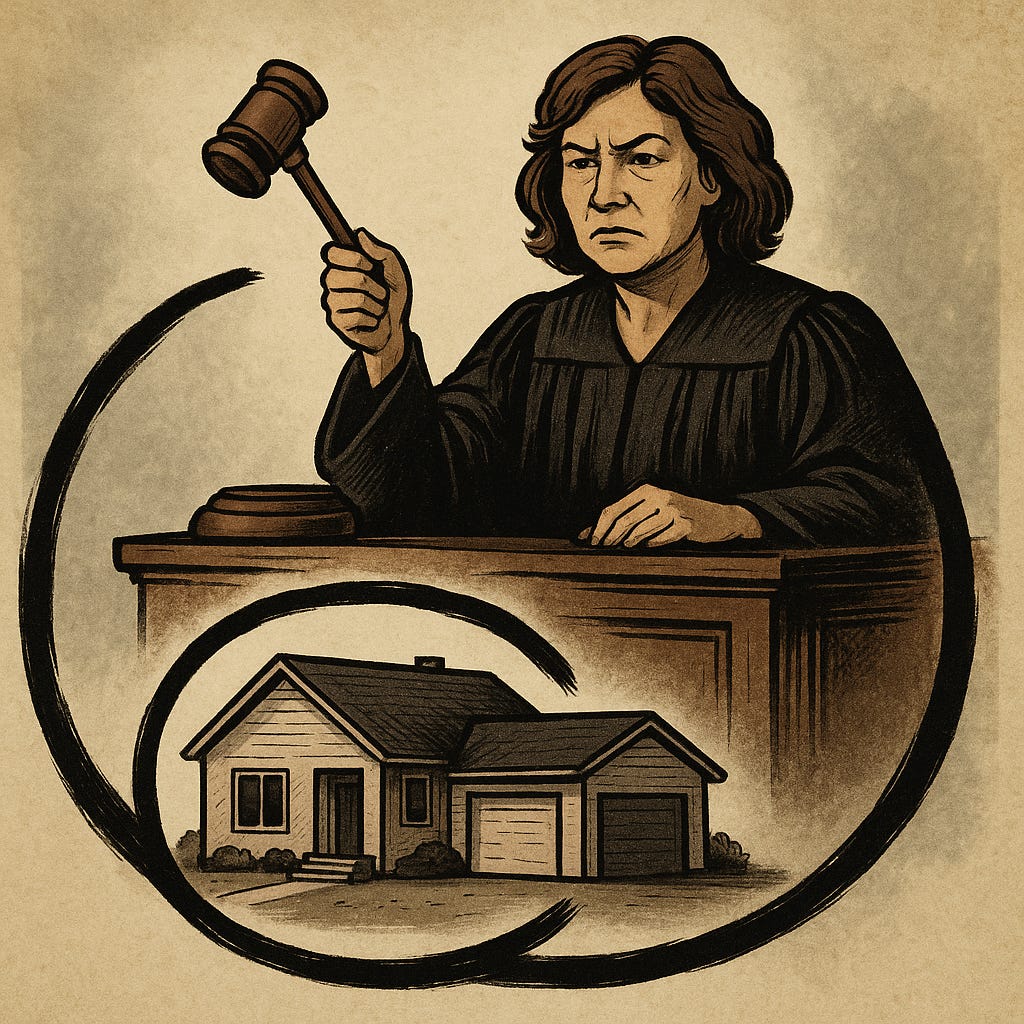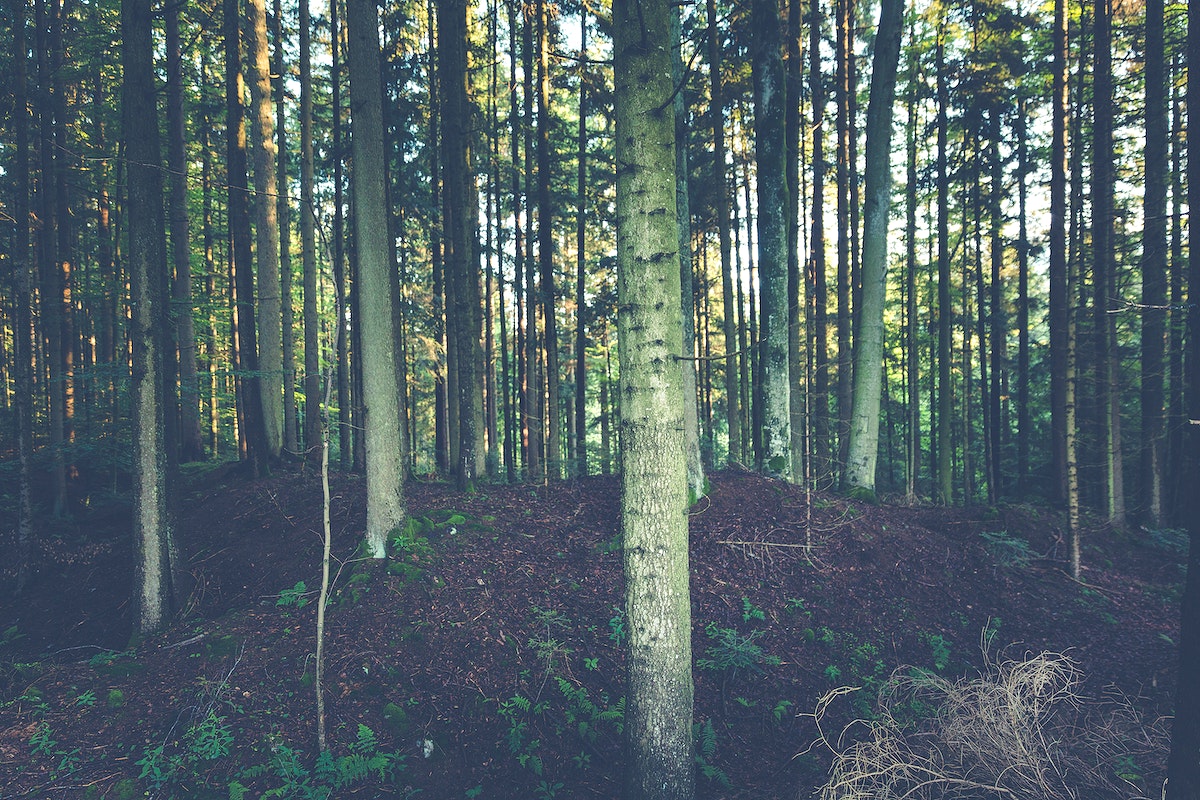In Canada, property rights rest on sand. The Charter omits them, the courts neglect them, and the political class scarcely defends them. Alberta stands out as somewhat of an exception. Its political culture, still rooted in autonomy and suspicion of distant power, makes property more secure than elsewhere. That uniqueness must be preserved and fortified — for Alberta’s sake and, perhaps, if Laurentians want to save their country, for the federation’s survival.

1. A troubling judgment from British Columbia
In early August 2025, Justice Barbara Young of the British Columbia Court of Appeals released a sprawling, 800-plus-page decision in Cowichan Tribes v. Canada (Attorney General), 2025 BCSC 1490. As a lawyer, Young practiced primarily in family law, personal injury and bankruptcy. Justice Young ruled that the Cowichan people hold ownership rights—“Aboriginal title”—over old village sites and parts of the Fraser River’s south arm in Richmond. Moreover, she stated that those rights supersede other existing claims, including land titles granted by the Crown to governments long ago. She went so far as to declare that some of the City of Richmond’s and Canada’s current land titles were invalid, and that Crown grants which created private ownership in the area were illegitimate unless renegotiated with the Cowichan. To soften the blow, she gave governments 18 months before her most disruptive orders take effect. The B.C. government has already said it will appeal.
Although the case formally covers just one stretch of Richmond, its implications are much larger. If Aboriginal title is treated as the highest form of ownership, what becomes of the ordinary land titles that Canadians assume are ironclad? Media reports suggest more than a hundred parcels could be caught in this decision, ranging from industrial sites and commercial properties to expensive private homes. While Justice Young hinted that private owners might be dealt with through negotiation instead of immediate eviction, the message was unmistakable: in British Columbia, Crown land grants—and the private titles flowing from them—are no longer safe from the doubts of activist judges. People will lose their homes.
Granted, Justice Young doesn’t have the last word. The case will likely end up before the Supreme Court of Canada. That means that nine unelected judges, applying Section 35 and the Court’s own Aboriginal title jurisprudence, will decide where ownership stands in this country. That is how our system works, and that is why the case matters beyond Richmond.
2. The logical end of a world without secure property rights
Property rights are one of the cornerstones of liberal democracies and are a key component of market economies.
Strip away secure ownership and daily life, at first, barely stirs. You still sleep in your house, harvest your field, and open the shop. But the character of every action changes. Without a reliable right to exclude others—and without a stable, property transferable title—use depends on permission. Wealth ceases to be capital and reverts to stuff.
The renowned economist Hernando de Soto made this case two decades ago in “The Mystery of Capital.” The West’s leap ahead rested not on natural genius but on the hard work of formalizing property: making ownership legible, enforceable, and tradable so assets could be collateralized and pooled. Where title is clear, a home can be pledged to finance expansion, a lease can be securitized, and a project can attract outside capital. Where title is murky, wealth hides under mattresses or migrates offshore. De Soto called the untitled wealth of informal systems “dead capital,” estimating trillions locked outside the formal economy; unlock the property titles and you unlock growth. (IMF, Reuters)
History supplies the cautionary tales. Venezuela nationalized and expropriated across sectors; price controls and confiscations turned productive assets into political patronage and helped drive a spectacular economic collapse. Zimbabwe seized private farms; agricultural output cratered, and hyperinflation followed. When ownership turns political, whether this is done by naïve judges or ambitious politicians, capital flees, and the middle class discovers that saving in bricks and mortar is no longer safe. Canada is not Venezuela or Zimbabwe, but the rule is the same: weaken property and you sap the economy’s spine.
We should be blunt about the Canadian version of this disease. Even without expropriation, the slow corrosion of property security—by judicial innovation, by regulatory “takings,” by shifting political priorities—has the same end. Investment becomes tentative. Debt becomes dearer. Projects that require long-horizon certainty stall. Families and firms hedge by moving capital or attention elsewhere. A federation that treats titles as contingent erodes not only prosperity but trust.
Ironically, Prime Minister Mark Carney has promised to build, build, build. But no one is crazy enough to invest in and build things that a court can suddenly rule someone else is the owner. And regardless of how the Supreme Court eventually rules in Cowichan, uncertainty will now be the norm for a decade, or maybe more. Investors will not wait for clarity.
Worse still, Canada’s political culture guarantees instability. In an era where governments, media, and courts indulge every Indigenous claim — even outright fabrications such as the mass grave hysteria — the presumption will always tilt against secure ownership. The uncertainty is not temporary. It is becoming structural.
3. Alberta’s distinct advantage
Not every province is B.C., however. Alberta’s political culture is different, and that difference matters. There, property is not merely an asset class; it is the foundation of autonomy. Homesteaders, ranchers, and oil patch entrepreneurs made the land productive and built towns on top of ranches and wells. The old suspicion of far-off power never fully died. That ethic has consequences. It shapes what governments propose, how courts read statutes, and how voters react when lines are crossed.
Because Canada’s written constitution—the Charter—deliberately omits an entrenched property right, the real constitution of property in this country has long been unwritten and cultural. Written guarantees are what James Madison called “parchment barriers;” their value depends on whether a government is willing to abide by the rules and a people insist on them. In Alberta, the unwritten constitution of practice—the reflex that expropriation must be rare and costly, that regulatory takings are suspect, that land use should be governed by consent rather than fiat—still has force, even if it is eroding too. In Saskatchewan, a similar prairie instinct still holds.
In B.C., where the institutional and cultural emphasis has shifted toward reconciliation and bureaucratic governance, judges and ministries feel freer to rethink ownership from the bench and the office. Elsewhere, in Ontario, Nova Scotia, and Quebec, the public is more tolerant of managerial government.
As Maritimer Stephen Maher recently conceded, in Nova Scotia it is relatively easy to defend restrictions on land use “for the public good.” He openly contrasted this with Prairie culture, where such arguments would trigger instinctive pushback. That single observation captures the gulf. Alberta’s culture of property is sturdier than B.C.’s, sturdier than Ontario’s, sturdier than Nova Scotia’s. In a country without constitutional property rights, culture is the backstop — and Alberta still has it.
Among all the jurisdictions in the country, Alberta is likely the best prepared for such unpredictable changes.
To continue reading, please join our Haultain Substack here for free.

